|
Westside CAN Center Community Orchard
Westside CAN community orchard aims to provide access to a safe, healthy and educational environment that engages volunteers from the neighborhood, schools, profit and nonprofit businesses.
Westside CAN Orchard is located in the heart of the Westside community at 21st Street and Belleview, KCMO 64108.

The Westside CAN Orchard promotes an ecosystem that works in harmony with nature, provides many environmental benefits such as reduces pollution, takes up carbon dioxide, produces oxygen, provides habitat for wildlife, holds water, reduces soil erosion with fruit trees, shrubs, and herbs working together to prevent pest and disease problems, increasing soil fertility and increasing property value.
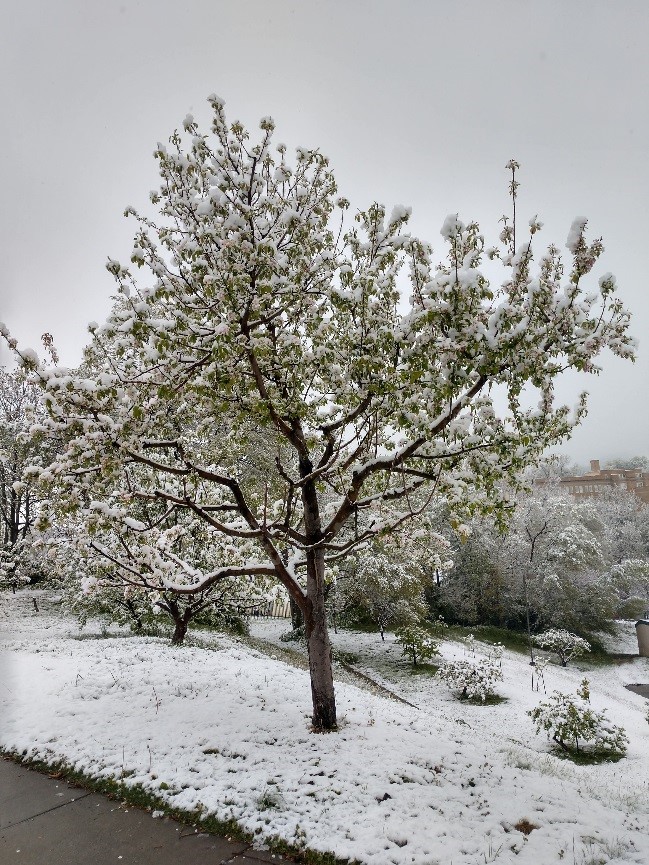 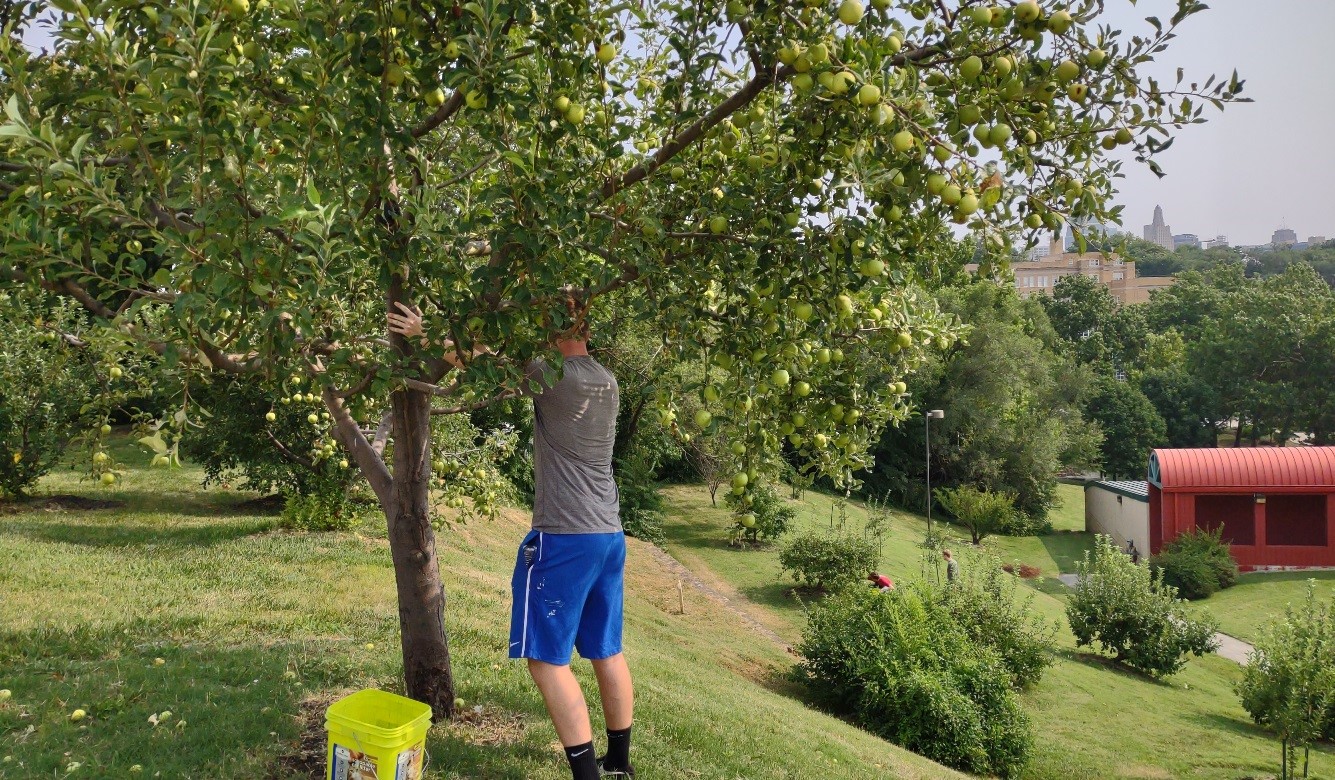
Westside CAN Orchard provides a vital green space where children, youth, adults, seniors and families are encouraged to interact with nature either through becoming volunteers-keepers of the trees or by simply being around them and enjoying their shade, beauty and fruits.
Westside CAN Orchard is good for people and wildlife, offering all-year round opportunities for community activities, from winter pruning, thinning spring blossoms, summer picnics, autumn fruit picking sessions, apple days, quinceañera or senior prom photos sessions.
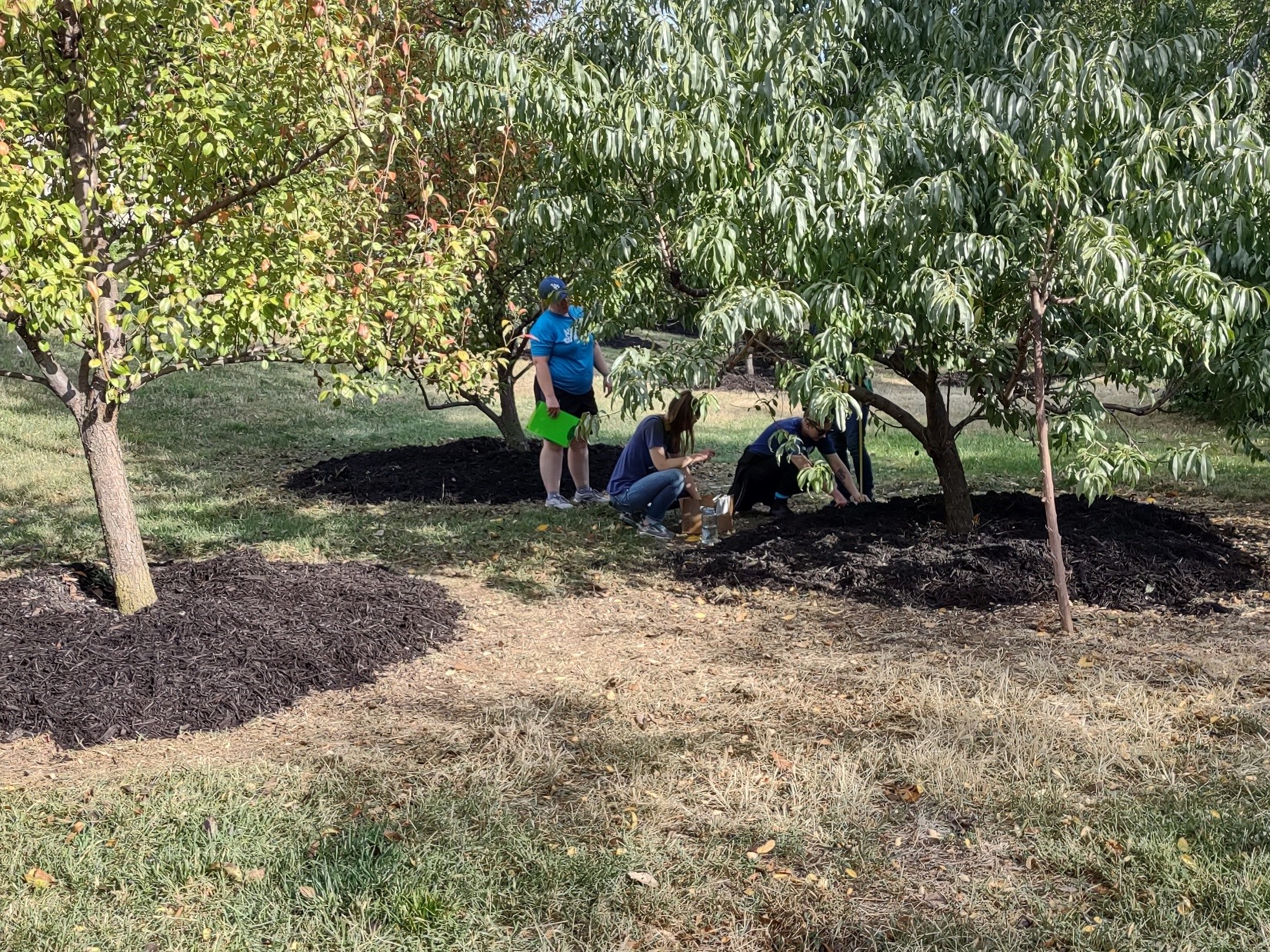
Westside CAN Orchard allows for safe, healthy and proactive social interaction and builds a great feeling of community, helps to reduce crime, empowers residents and allows residents to feel safe in their neighborhood, prevents/stops suspicious activity and/or Illegal dumping that can create health hazards such as respiratory problems and controls rodents that carry a number of diseases. Illegal dumping is an eyesore that affects the value and safety of homes around the community.
Components of the Westside CAN Orchard
Beehives – Pollinators
The Westside CAN Orchard has 4 beehives. Bees are a fundamental species to preserve life. Various animals depend on bees for their survival because their food sources - nuts berries, seeds, and fruits - rely on insect pollination, helping maintaining plant biodiversity in natural ecosystems.
 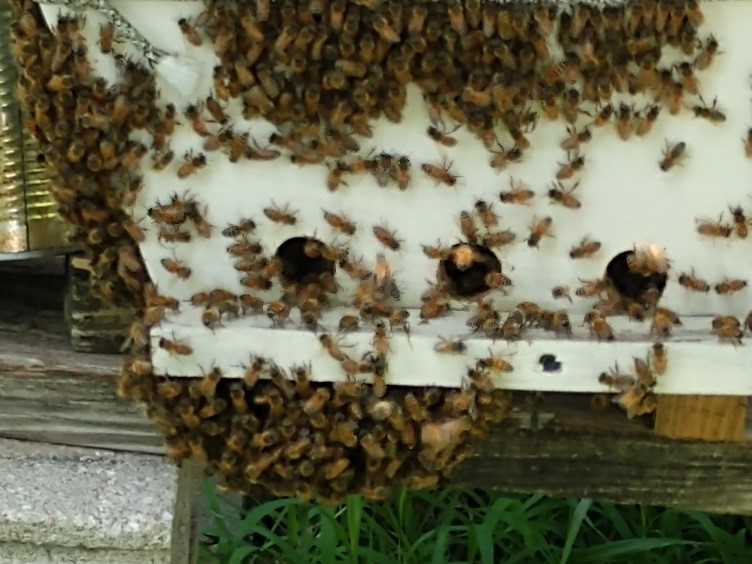
At the Westside CAN beehives serve several purposes: production of honey, pollination of fruit trees, vegetable garden and some volunteers use as apitherapy treatment. They use to treat illnesses and their symptoms as well as pain from acute and chronic injuries: arthritis, infections and others. Honey has been studied as a cough suppressant and may have anti-inflammatory effects.
Fruit trees
Currently there are 135 fruit trees: apple, peach, pear, apricot and plum plus blackberry bushes and grape vines. Year round volunteers help with pruning, mulch, thinning, harvesting and spraying the trees.
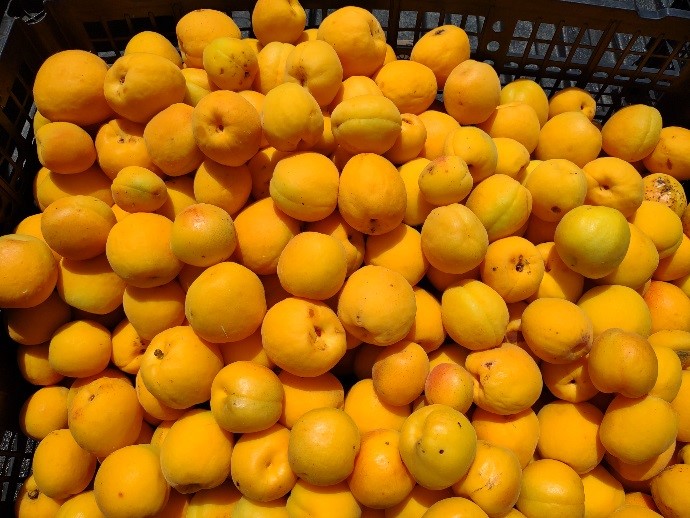 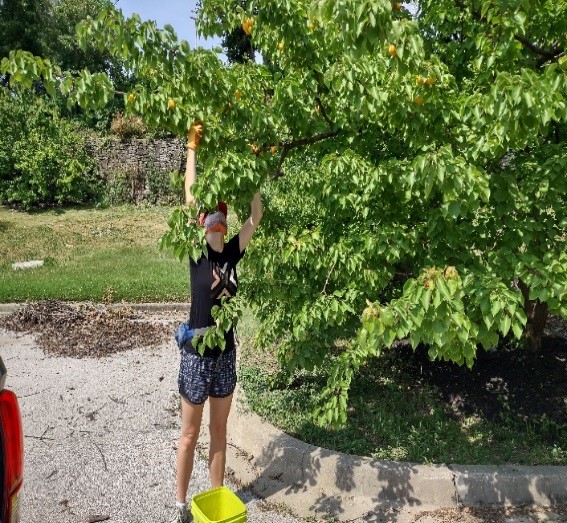 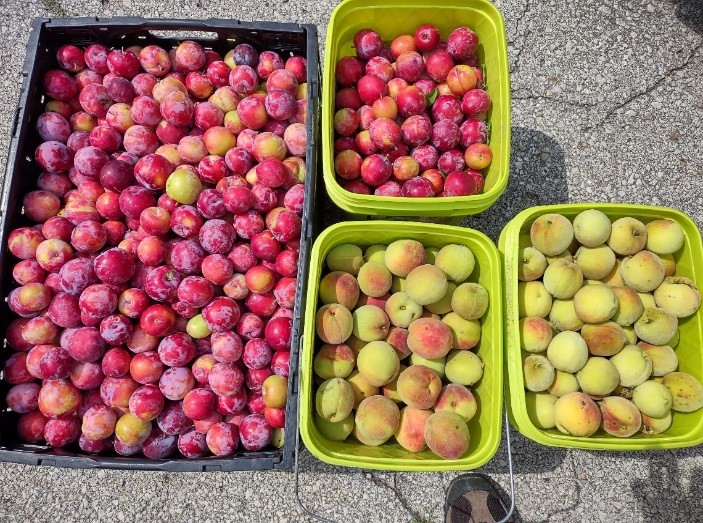
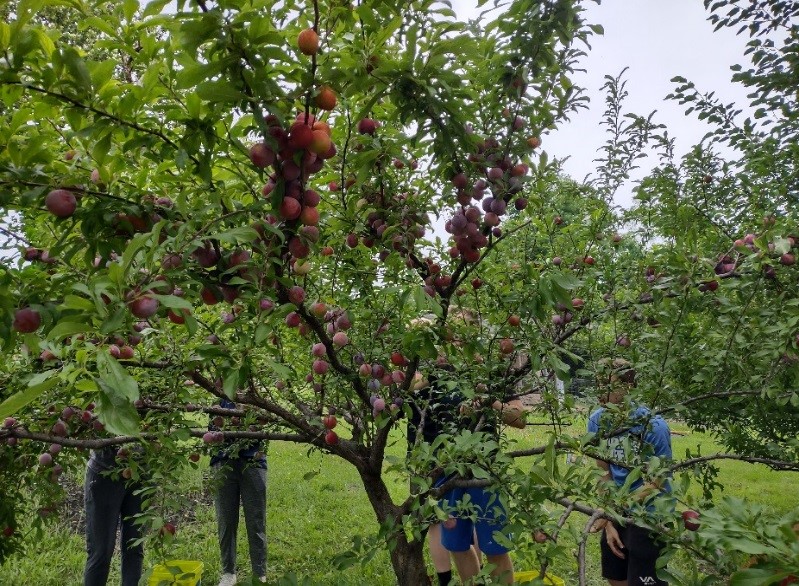 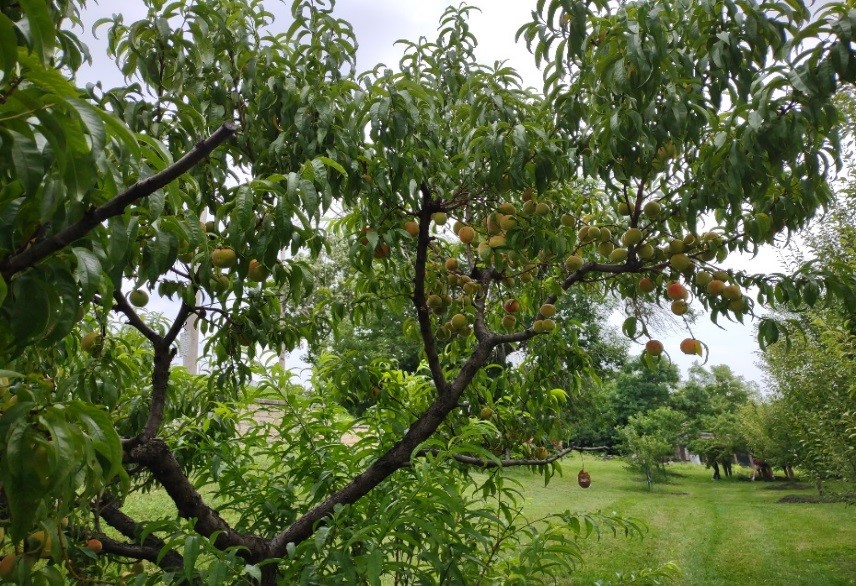
Chicken coop
Currently there are 12 chickens that during a regular season produce 6 to 10 eggs every day. Eggs are used as a nutritional program or distributed to families around the community. Chicken manure is used around the Westside CAN Orchard. The manure is a fertilizer that contains macronutrients, nitrogen, phosphorus, potassium, and calcium needed for healthy plant growth.
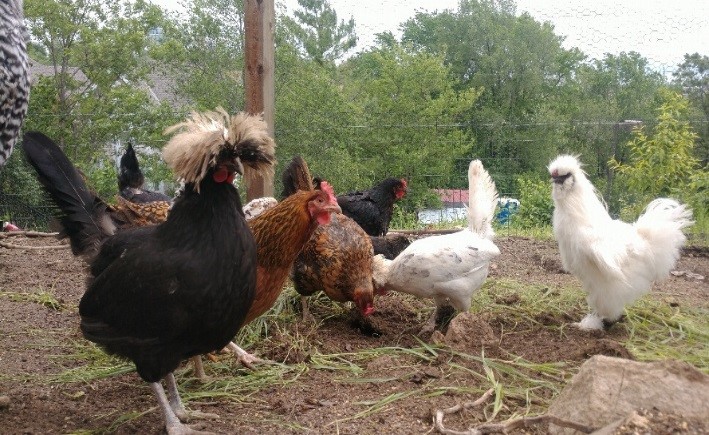  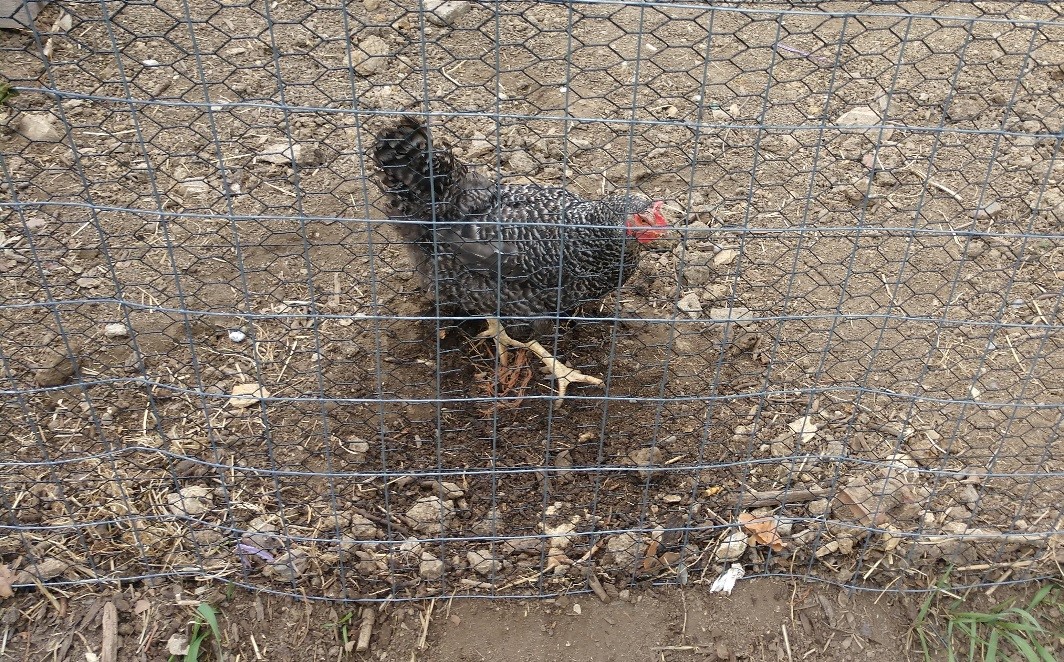
Vegetable garden
Onions, lettuce, jalapenos, cilantro, tomatoes, garlic, radish, carrots, cucumbers, corn, etc. are some of the vegetables that volunteers grow at the Westside CAN vegetable garden. The garden’s focus is to reinforce good nutrition, physical activity, community engagement, safety, and economic vitality for the neighborhood and the residents.
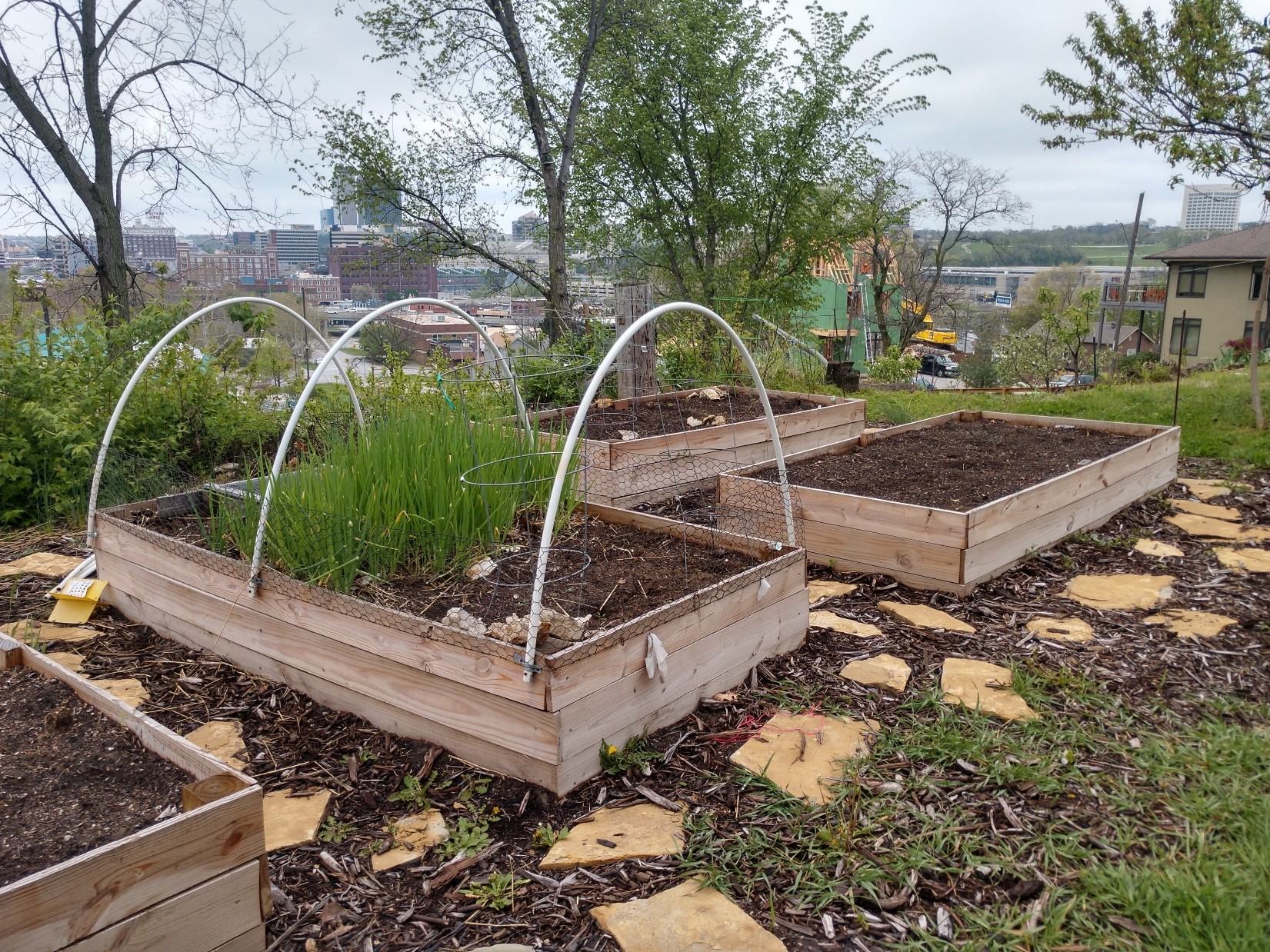
Westside CAN vegetable garden promotes the establishment of social connections and build a better feeling of community. These connections help reduce crime, empower residents and allow residents to feel safe in the Westside.
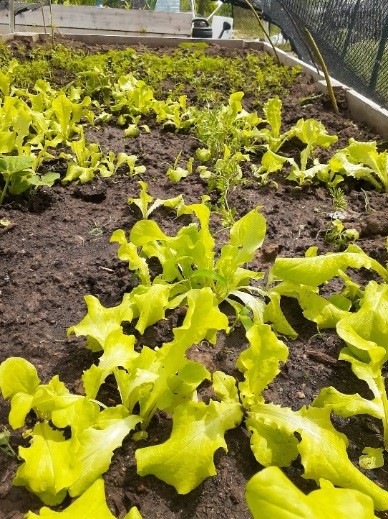  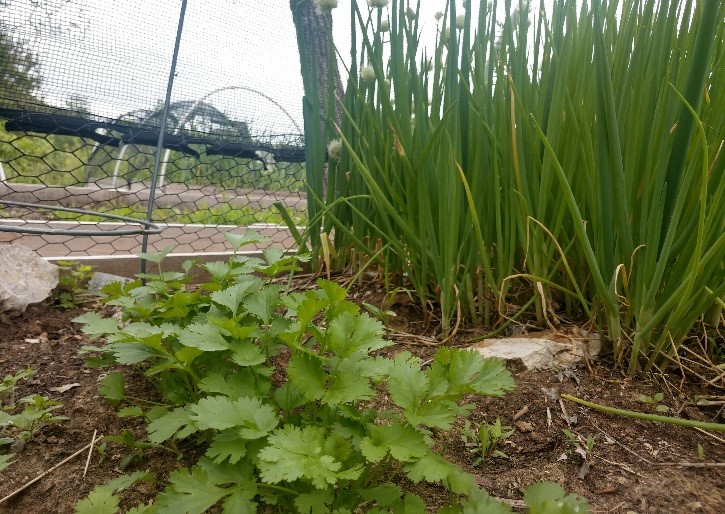
Westside CAN vegetable garden is one of the alternatives to confront the problem of food deserts. As the Westside community faces limited access to affordable and nutritious food, the Westside CAN vegetable garden becomes an alternative where residents can participate actively and recognize that it is imperative they take responsibility and proactively engage in the year round programs to break the circle of factors that traditionally affect the families such as food insecurity, social deterrents of health, racial residential segregation, poor access to transportation among low-income, historically marginalized populations.
Medicinal garden-aromatic plants.
Westside CAN has a small medicine garden that includes some aromatic plants that helps the natural environment and agro-ecosystems. Medicinal plants are considered as a rich resource of ingredients that has been used in drug development, either pharmacopoeia, non- pharmacopoeia or synthetic drugs. Medicinal garden-aromatic plants play a critical role in the development of human cultures not only in the Westside but around the world. Some of the medicinal plants at the Westside CAN Orchard are garlic, basil, mint, ginger, peppermint, ruda (ore) , rosemary, lavender, etc.
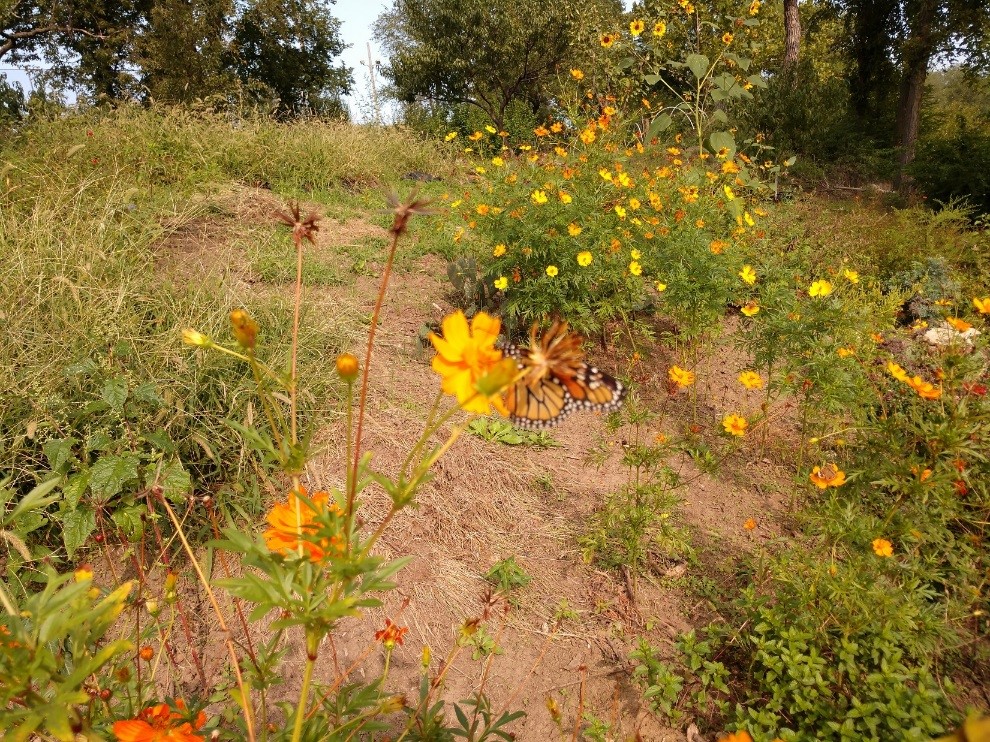
Butterfly garden – Monarch station:
Westside CAN Orchard has a butterfly garden that aims to provide an environment for butterflies and other native insects and helps perpetuate native plant species. Monarch butterflies are pollinators! As monarchs forage for nectar they unintentionally move pollen within and between flowers. This movement of pollen helps flowering plants make seeds, which can eventually disperse and grow into more plants.
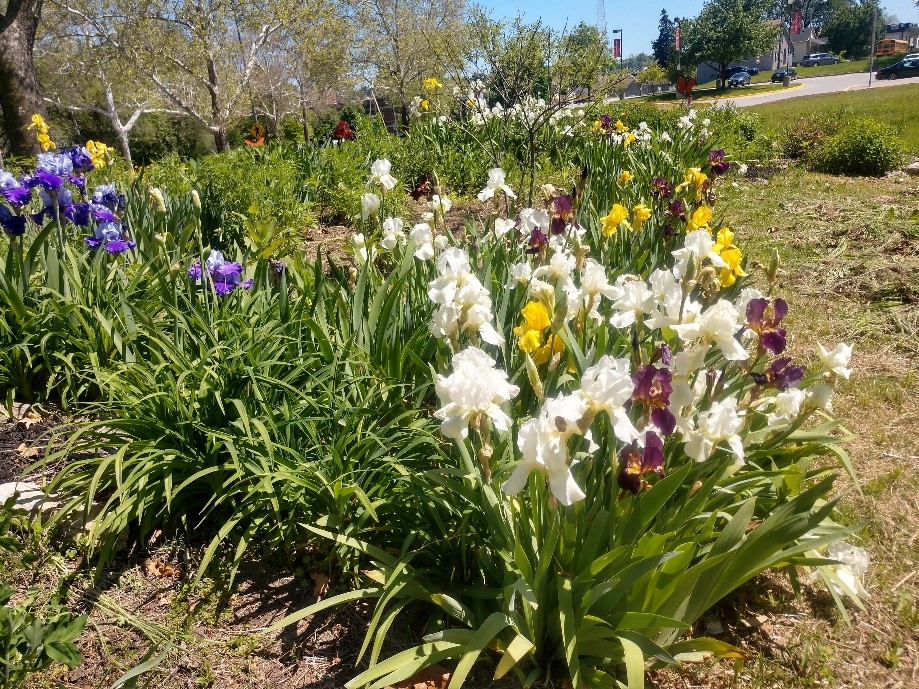 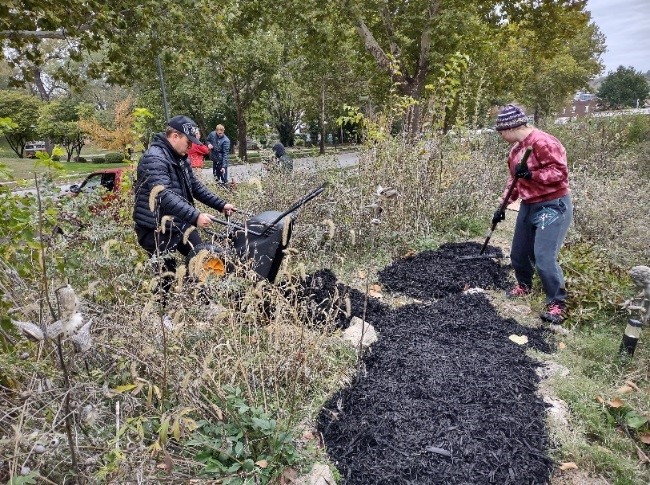
The Westside CAN Butterfly gardening provides a recreational activity to view butterflies interacting with the environment especially in the fall season and natural settings through the colorful appeal of the flowers and insects.
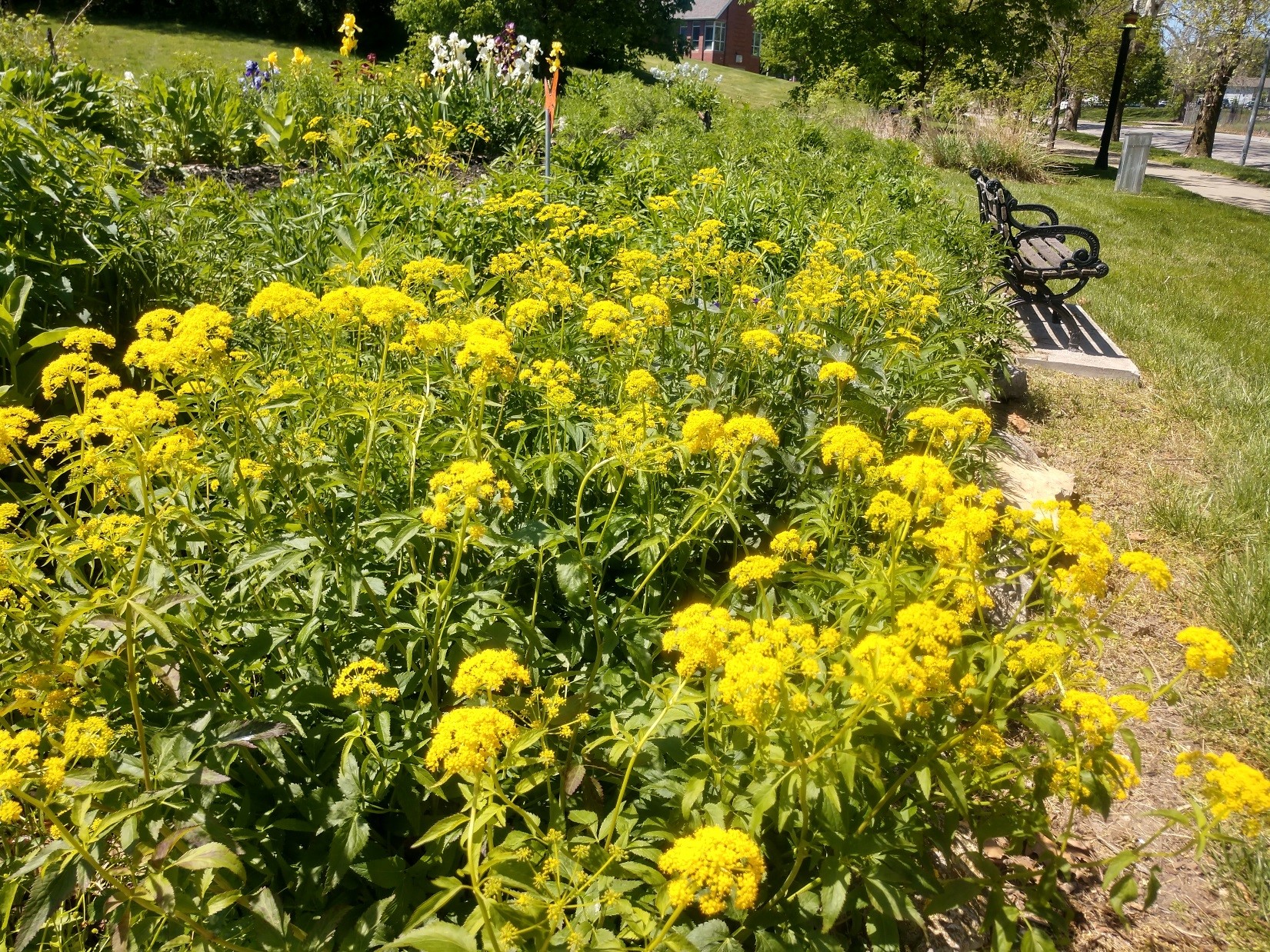
The Butterflies are important pollinators. Approximately one-third of all plants need pollination to set fruit. Flower nectar is the food for adult butterflies and by flying from flower to flower, sipping nectar, and pollination occurs. ButterӾies are not only fun to watch but they serve a critical purpose as well. ButterӾies and other pollinators including bees, moths, birds, and bats pollinate over 75% of the world's Ӿowering plants.
Rain garden - A rain garden has been established at the north side of Tony Aguirre Community Center and is located in a depressed area in the landscape that collects rain water from the Community Center roof and from around the Orchard area and allows it to soak into the ground. The rain garden helps filter out pollutants in runoff and provides food and shelter for butterflies, song birds and other wildlife around the Westside CAN community orchard.
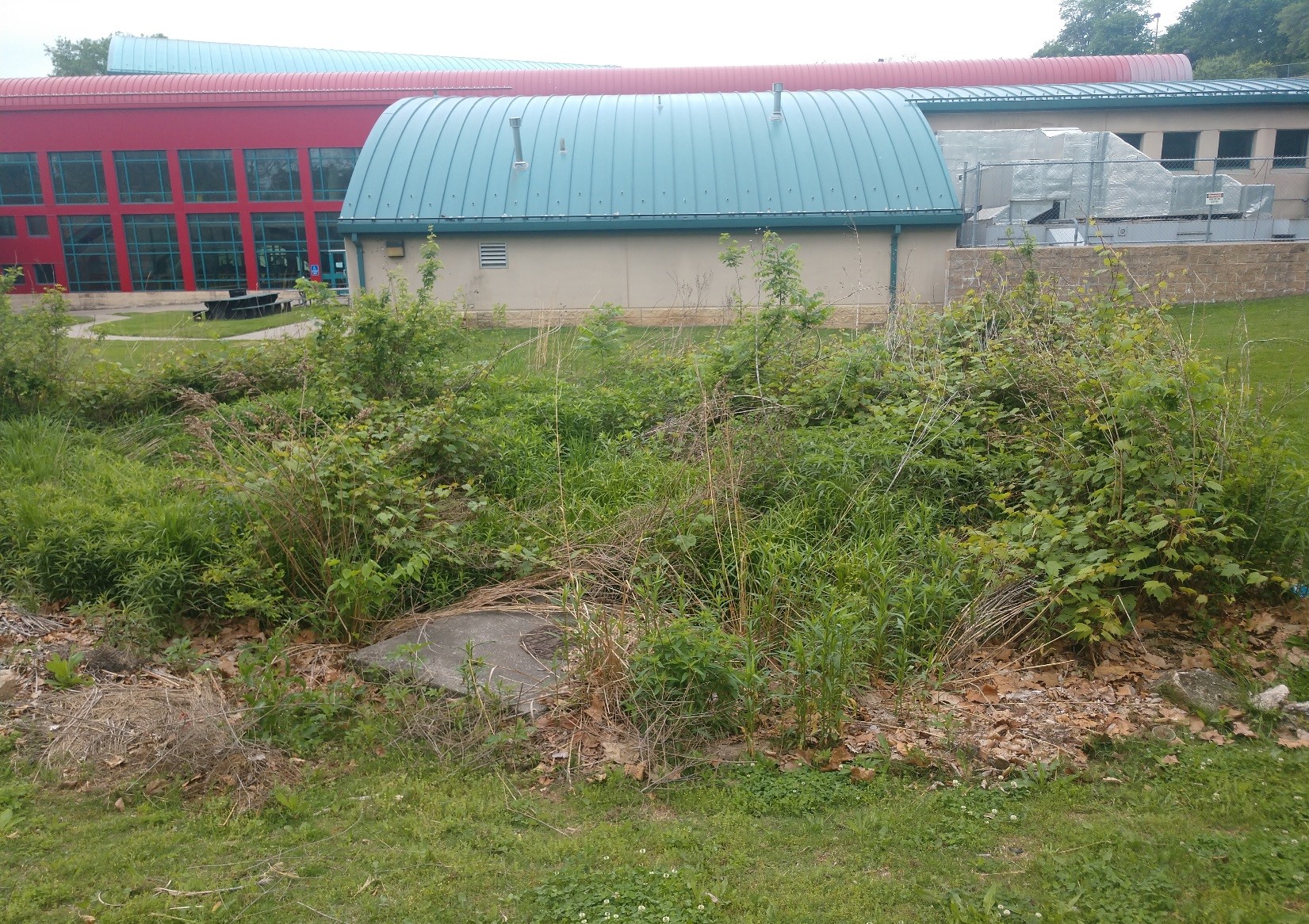
Volunteer opportunities
The Westside CAN Orchard offers so many opportunities for volunteers from the neighbor as well from schools, groups of friends, co-workers, churches, colleges, etc. There is always something to do and to take care at the orchard. Do not hesitate to contact the Westside CAN to participate in the next service project at the Westside CAN Orchard. 816.842.1298
Educational tours at the Westside CAN Orchard
We offer basic educational tours to the orchard during the spring, summer and fall seasons. Participants will learn about the different components of The Westside CAN Orchard. The different roles of the orchard include: encouraging people to eat more nutrient-dense fruit and less processed, unhealthy food, utilize empty spaces to create safe/healthy and educational environment within the community, etc. Contact us to schedule a group tour with your friends-family, your school, your church or your co-workers. 816.842.1298.
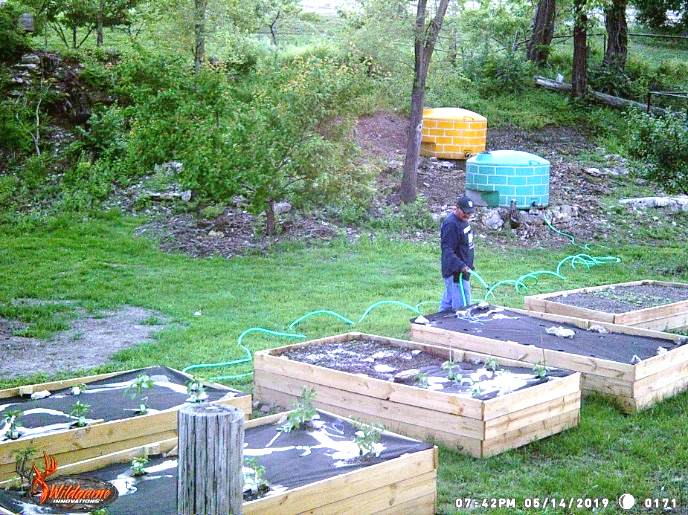 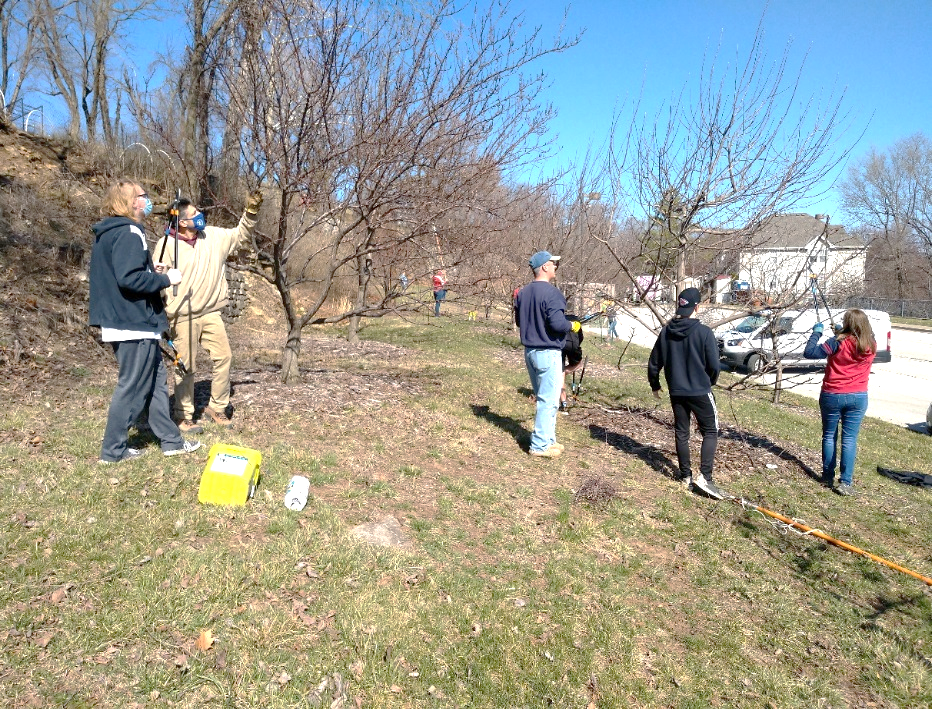
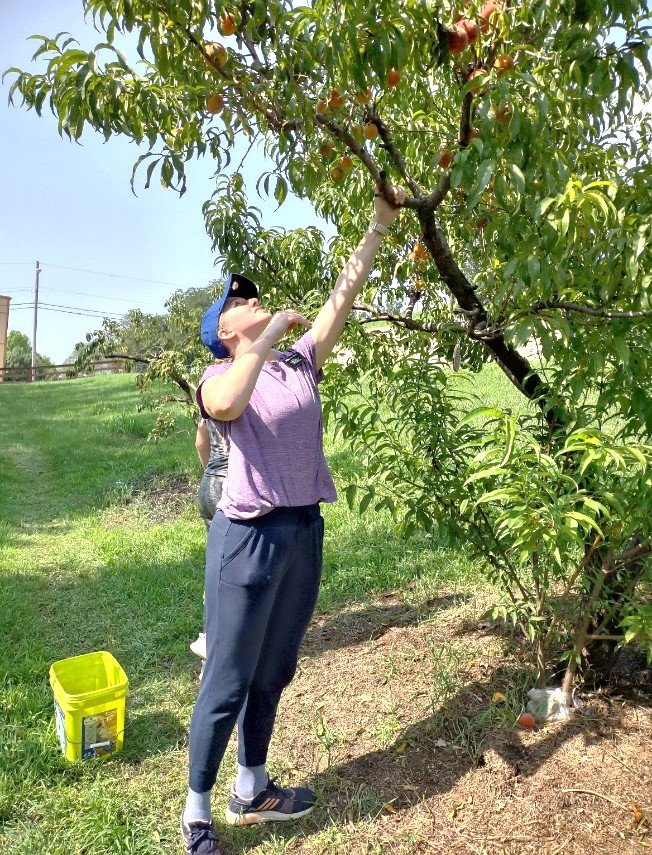 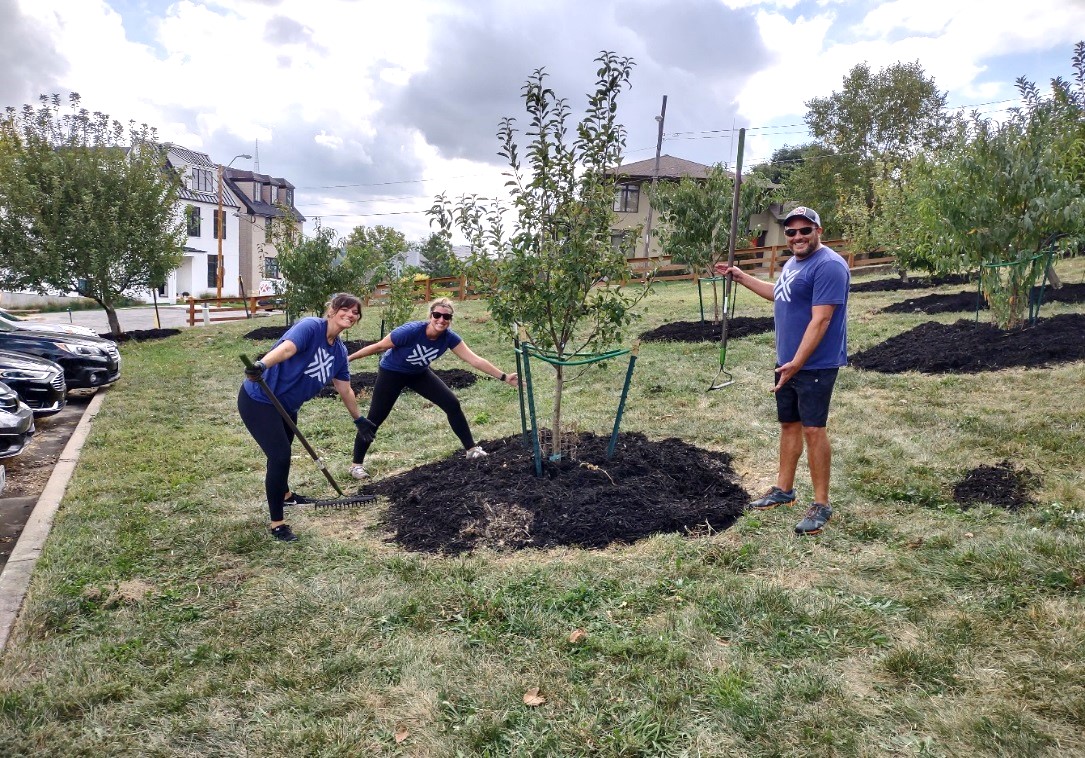
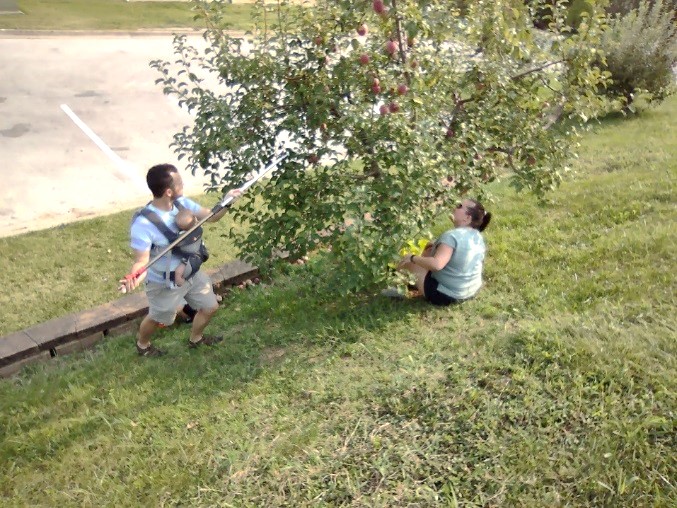 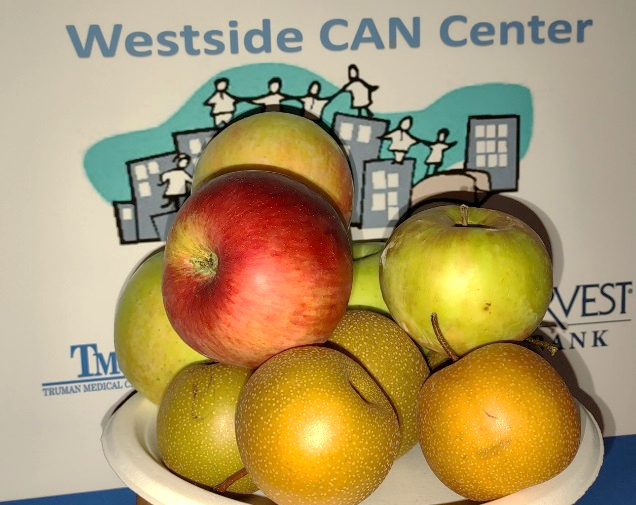 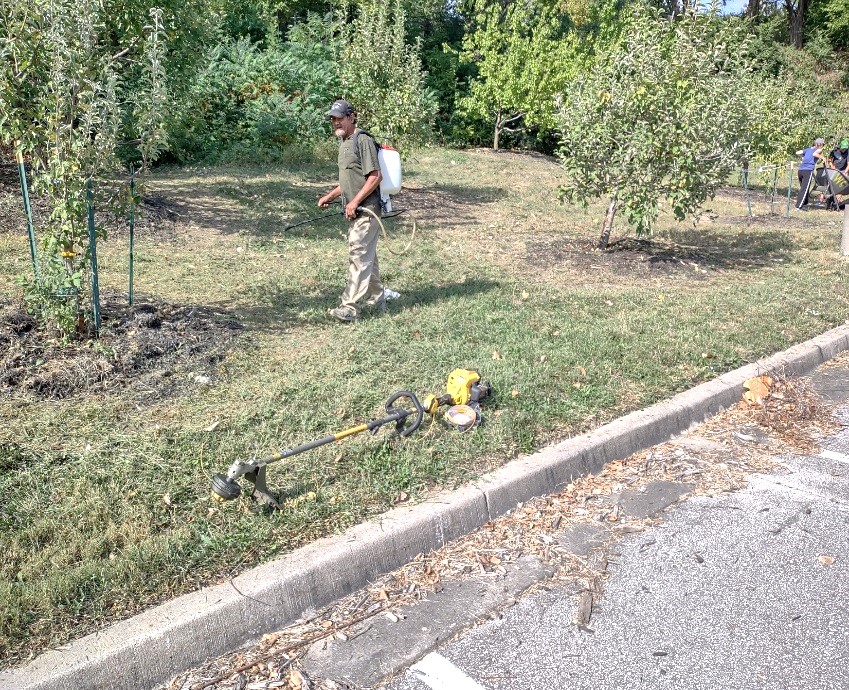
|